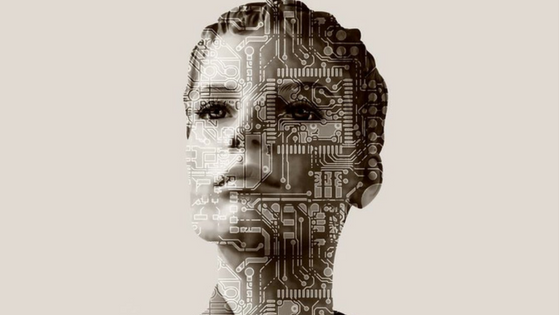Marketing Combined with AI? How Plausible is This to Happen
With staggering advances made in the field of Artificial Intelligence over the past decade, and with the biggest companies in the world investing in the development of AI technologies, such as Google’s Deep Mind project, we can safely say that companies and entrepreneurs around the world are looking to capitalize on the opportunities that AI presents.
Artificial Intelligence is expected to help in every area of human existence, from the medical industry to helping shoppers reach a faster decision and bring audiences a more personalized experience than ever before.
But even though scientists are constantly making breakthroughs in AI development, how likely is it to replace the human factor in the creative marketing industry? How likely is it for AI to take over the marketing industry as a whole and produce better and faster results that human consumers will connect with?
RELATED: Key Financial Tips On How To Help Reduce Your Start Up Business Debt
The coming of the AI
Contrary to popular predictions induced by Hollywood renditions of futuristic scenarios where machines take over the world and AI enslaves the human population, the reality simply doesn’t have to be so grim. Dr. Stephen Hawking, the most renowned physicist in the world, often looks towards the future of human progress and makes calculated predictions that are meant to entice the scientific community to work even harder towards realizing the common goal – to reveal the mysteries of the world, and beyond.
“Computers will overtake humans with AI at some point within the next 100 years. When that happens, we need to make sure the computers have goals aligned with ours…” – Steven Hawking
This is to say that the fear of a negative AI impact on the human race is currently unfounded and that it might actually be detrimental to the speed by which technological advances are made. The development of AI is underlined with a simple premise – to help and improve the world. Therefore, should experts in the marketing industry be concerned about AI technology taking their jobs, or making humans obsolete in certain areas of the industry? The short answer is no, but there is much more to it than you might think.
Quality over cost
While content AI would be a far cheaper solution for companies, it’s not likely that it would be implemented in the near future. Advances have been made in the customer service sector and consumer targeting, with companies like BMW and Aviso using AI software to provide market insights to sales teams. BMW has used its iGenius technology to improve customer experience via automated and intuitive text messages, proving that customer experience can be improved and managed with machines more effectively than with humans.
But what about content and communication?
The rise of natural language generation
Machines are now able to produce stories, reports and reviews based on simple data input that, when written in short form, is hardly distinguishable from human writing. Although it needs much more improvement, AI seems to be able to mimic the language requirements for human-like content creation.
“Grass pollen levels for Friday have increased from the moderate to high levels of yesterday with values of around 6 to 7 across most parts of the country. However, in Northern areas, pollen levels will be moderate with values of 4.” – Natural Language Generation System
In contrast, a human meteorologist brings a more personal touch to the story, but with the same result.
“Pollen counts are expected to remain high at level 6 over most of Scotland, and even level 7 in the south east. The only relief is in the Northern Isles and far northeast of mainland Scotland with medium levels of pollen count.” – Human Meteorologist
Language has always been a major obstacle for AI due to its complexity and variety, yet deep learning processes and recent advancements in intuitive knowledge acquisition has enabled considerable breakthroughs in the field of content creation.
What does this mean for content marketing?
Machines are able to provide crude and precise information, but are they capable of surpassing their human counterparts in creative content creation?
No, or at least, not yet. The art of storytelling is far beyond the AI’s reach at the moment, with human-like traits such as empathy, emotion, social and moral codes dominating the content field. There are, companies like Kahuna and Persado that rely on AI software for content creation on many different levels, and that is where litigation support becomes an important aspect of the industry.
Because of the delicate intricacies that make each the technologies, companies can quickly fall into legal disputes and become easy targets for technology frauds and copyright infringements. The AI field is still a rather unregulated field, and it can be misused easily.
So, the most likely outcome for content creation in the near future is AI giving the framework and humans delivering the final, emotional and “relevant” touch to the story – no more than that.
While AI is, and will be, on the rise, there is little chance of it overtaking the marketing industry, until it’s able to master basic human traits. Until then, the marketing industry remains a human domain, requiring a personal touch and an engaging voice.








